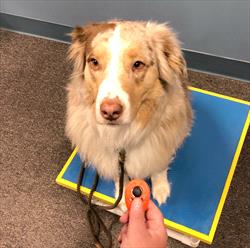Q: My trainer wants me to do an alpha roll with my dog during training sessions, but my dog struggles and gasps for air. How does this method help?
A: The alpha roll is a training method that is no longer recommended. It involves forcefully flipping a dog onto their back and holding them there. This approach was originally based on the alpha theory in dog training, which suggested that dominant dogs in a pack would flip subordinate ones onto their backs to establish dominance. However, this theory has been disproven by modern research. Studies that initially proposed this idea were conducted on wolves and do not apply to domestic dogs, as dogs do not naturally form packs in the same way.
There are significant risks associated with the alpha roll. It can cause physical harm to the dog, including injuries to the legs, spine, and internal organs. It can also create fear and stress in the dog, damaging the bond between the dog and their caregiver. Dogs may lose trust in their handler and bite in an attempt to defend themselves.
Moreover, this technique can lead to increased aggression in dogs. If a dog feels frightened and trapped, they may defend themself, potentially escalating to snapping and biting. The dogs become fearful of being touched, which can make ordinary activities, like putting on a leash, challenging or even dangerous.
The alpha roll is also ineffective in teaching dogs desired behaviors. It does not communicate what is expected of them and removes their sense of choice and control. Essentially, it teaches dogs to fear and mistrust humans. Instead, it is advisable to use positive reinforcement training methods.
These methods focus on rewarding good behavior, helping to build trust and confidence in the dog. They are also more humane and effective for teaching.
If you are unsure about your trainer’s methods, it is wise to consult with your veterinarian. Consider seeking a certified trainer who employs modern, science-based positive reinforcement techniques. For assistance in finding a qualified dog trainer or behavior professional, you can refer to resources such as CattleDog Publishing.



